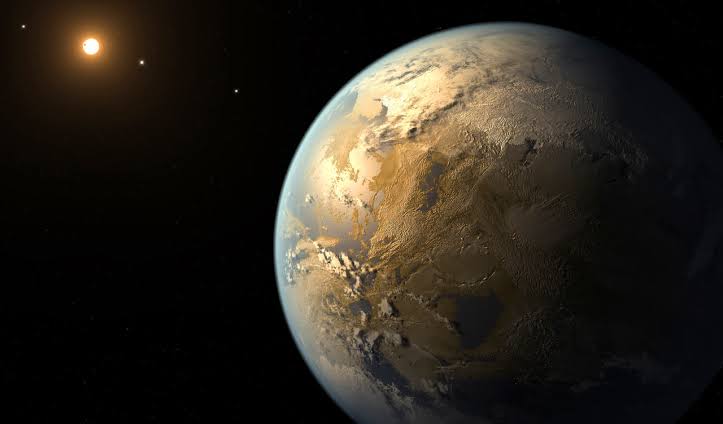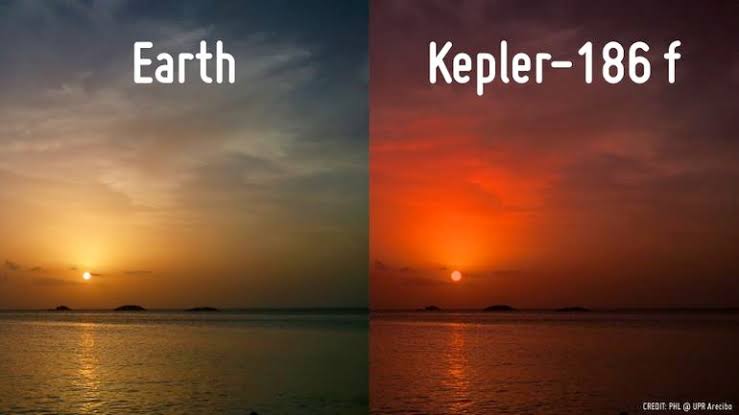Kepler-186f (also known by its Kepler Object of Interest designation KOI-571.05) is an exoplanet orbiting the red dwarf Kepler-186, about 500 light-years (171 parsecs, or nearly 5.298×1015 km) from the Earth. It is the first planet with a radius similar to Earth's to be discovered in the habitable zone of another star. NASA's Kepler spacecraft detected it using the transit method, along with four additional planets orbiting much closer to the star (all modestly larger than Earth). Analysis of three years of data was required to find its signal. The results were presented initially at a conference on 19 March 2014 and some details were reported in the media at the time. The public announcement was on 17 April 2014, followed by publication in Science.
.jpg)
Kepler-186f's location within the habitable zone does not ensure it is habitable; this is also dependent on its atmospheric characteristics, which are unknown. However, Kepler-186f is too distant for its atmosphere to be analyzed by existing telescopes (e.g., NESSI) or next-generation instruments such as the James Webb Space Telescope. A simple climate model, in which the planet's inventory of volatiles is restricted to nitrogen, carbon dioxide and water and clouds are not accounted for, suggests that the planet's surface temperature would be above 273 K (0 °C; 32 °F) if at least 0.5 to 5 bars of CO2 is present in its atmosphere, for assumed N2 partial pressures ranging from 10 bar to zero, respectively.
.jpg)
The nearest-to-Earth-size planet in a habitable zone previously known was Kepler-62f with 1.4 Earth radii. Kepler-186f orbits an M-dwarf star, while Kepler-62f orbits a K-type star. A study of atmospheric evolution in Earth-size planets in habitable zones of G-Stars (a class containing the Sun, but not Kepler-186) suggested that 0.8–1.15 R⊕ is the size range for planets small enough to lose their initial accreted hydrogen envelope but large enough to retain an outgassed secondary atmosphere such as Earth's.
.jpg)
Excellent write!
Downvoting a post can decrease pending rewards and make it less visible. Common reasons:
Submit
Congratulations @pritambhatt! You received a personal award!
You can view your badges on your Steem Board and compare to others on the Steem Ranking
Vote for @Steemitboard as a witness to get one more award and increased upvotes!
Downvoting a post can decrease pending rewards and make it less visible. Common reasons:
Submit